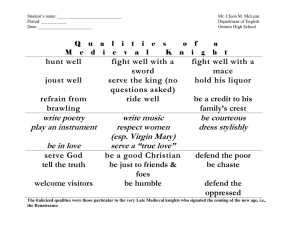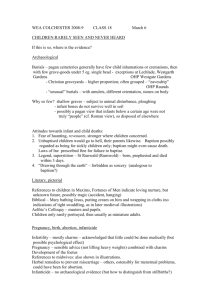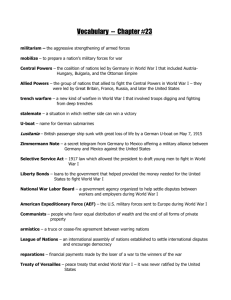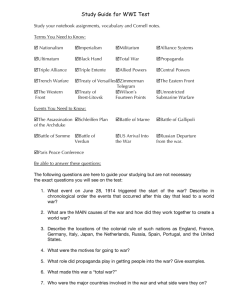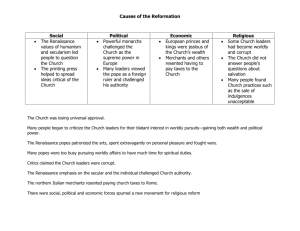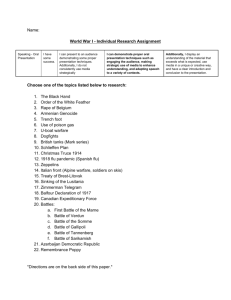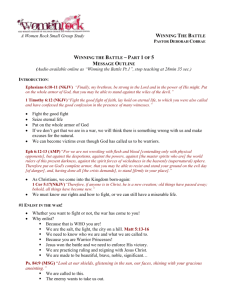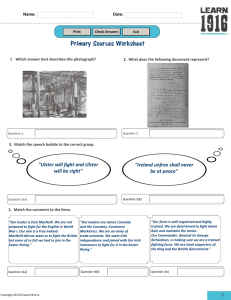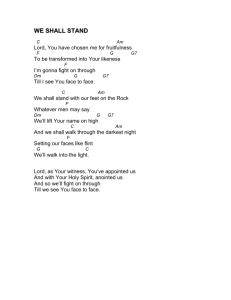Aelfric: Those Who Pray, Work, and Fight (from www.wwnorton.com
advertisement
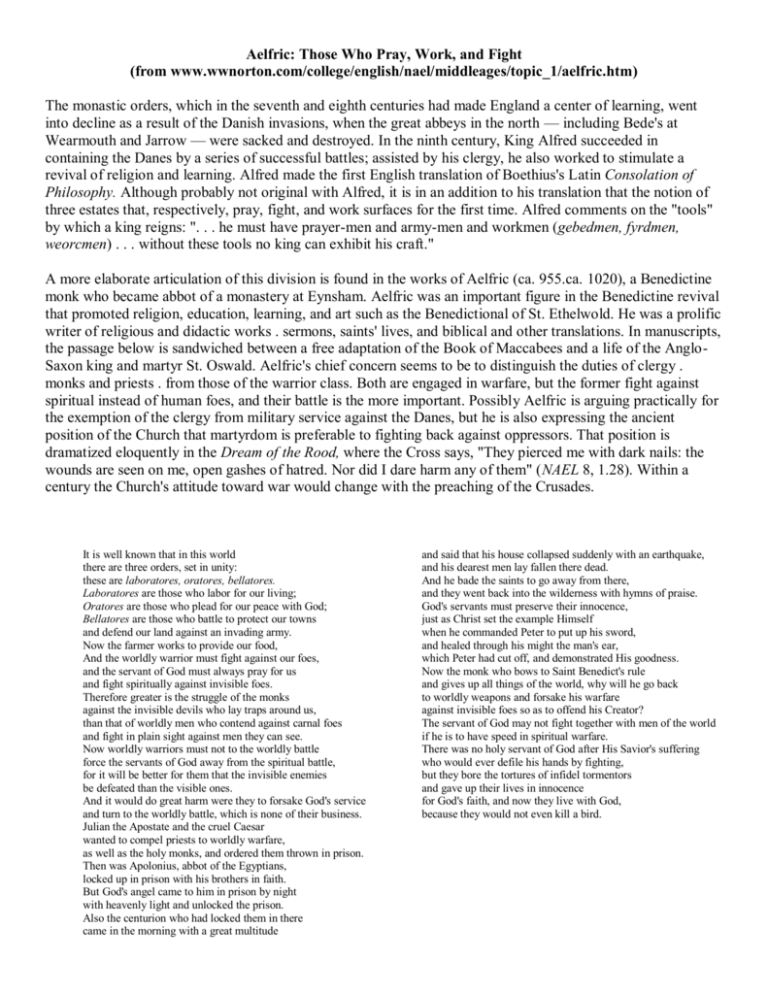
Aelfric: Those Who Pray, Work, and Fight (from www.wwnorton.com/college/english/nael/middleages/topic_1/aelfric.htm) The monastic orders, which in the seventh and eighth centuries had made England a center of learning, went into decline as a result of the Danish invasions, when the great abbeys in the north — including Bede's at Wearmouth and Jarrow — were sacked and destroyed. In the ninth century, King Alfred succeeded in containing the Danes by a series of successful battles; assisted by his clergy, he also worked to stimulate a revival of religion and learning. Alfred made the first English translation of Boethius's Latin Consolation of Philosophy. Although probably not original with Alfred, it is in an addition to his translation that the notion of three estates that, respectively, pray, fight, and work surfaces for the first time. Alfred comments on the "tools" by which a king reigns: ". . . he must have prayer-men and army-men and workmen (gebedmen, fyrdmen, weorcmen) . . . without these tools no king can exhibit his craft." A more elaborate articulation of this division is found in the works of Aelfric (ca. 955.ca. 1020), a Benedictine monk who became abbot of a monastery at Eynsham. Aelfric was an important figure in the Benedictine revival that promoted religion, education, learning, and art such as the Benedictional of St. Ethelwold. He was a prolific writer of religious and didactic works . sermons, saints' lives, and biblical and other translations. In manuscripts, the passage below is sandwiched between a free adaptation of the Book of Maccabees and a life of the AngloSaxon king and martyr St. Oswald. Aelfric's chief concern seems to be to distinguish the duties of clergy . monks and priests . from those of the warrior class. Both are engaged in warfare, but the former fight against spiritual instead of human foes, and their battle is the more important. Possibly Aelfric is arguing practically for the exemption of the clergy from military service against the Danes, but he is also expressing the ancient position of the Church that martyrdom is preferable to fighting back against oppressors. That position is dramatized eloquently in the Dream of the Rood, where the Cross says, "They pierced me with dark nails: the wounds are seen on me, open gashes of hatred. Nor did I dare harm any of them" (NAEL 8, 1.28). Within a century the Church's attitude toward war would change with the preaching of the Crusades. It is well known that in this world there are three orders, set in unity: these are laboratores, oratores, bellatores. Laboratores are those who labor for our living; Oratores are those who plead for our peace with God; Bellatores are those who battle to protect our towns and defend our land against an invading army. Now the farmer works to provide our food, And the worldly warrior must fight against our foes, and the servant of God must always pray for us and fight spiritually against invisible foes. Therefore greater is the struggle of the monks against the invisible devils who lay traps around us, than that of worldly men who contend against carnal foes and fight in plain sight against men they can see. Now worldly warriors must not to the worldly battle force the servants of God away from the spiritual battle, for it will be better for them that the invisible enemies be defeated than the visible ones. And it would do great harm were they to forsake God's service and turn to the worldly battle, which is none of their business. Julian the Apostate and the cruel Caesar wanted to compel priests to worldly warfare, as well as the holy monks, and ordered them thrown in prison. Then was Apolonius, abbot of the Egyptians, locked up in prison with his brothers in faith. But God's angel came to him in prison by night with heavenly light and unlocked the prison. Also the centurion who had locked them in there came in the morning with a great multitude and said that his house collapsed suddenly with an earthquake, and his dearest men lay fallen there dead. And he bade the saints to go away from there, and they went back into the wilderness with hymns of praise. God's servants must preserve their innocence, just as Christ set the example Himself when he commanded Peter to put up his sword, and healed through his might the man's ear, which Peter had cut off, and demonstrated His goodness. Now the monk who bows to Saint Benedict's rule and gives up all things of the world, why will he go back to worldly weapons and forsake his warfare against invisible foes so as to offend his Creator? The servant of God may not fight together with men of the world if he is to have speed in spiritual warfare. There was no holy servant of God after His Savior's suffering who would ever defile his hands by fighting, but they bore the tortures of infidel tormentors and gave up their lives in innocence for God's faith, and now they live with God, because they would not even kill a bird.
